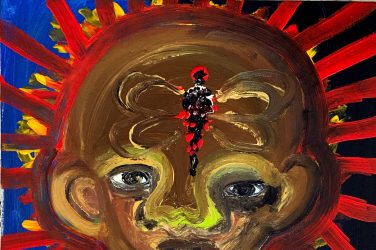 When, at parties, I tell a Brazilian that I moved here from the United States 21 years ago and have been married to a Brazilian woman with two kids for most of that time, they will often respond “Ah, então você já é brasileiro” (“Oh, you’re already Brazilian”). But when someone else at that party asks that Brazilian who I am, he invariably says I’m a gringo.
When, at parties, I tell a Brazilian that I moved here from the United States 21 years ago and have been married to a Brazilian woman with two kids for most of that time, they will often respond “Ah, então você já é brasileiro” (“Oh, you’re already Brazilian”). But when someone else at that party asks that Brazilian who I am, he invariably says I’m a gringo.
In giving me this label, Brazilians make no distinction between me and the foreigner who arrived here yesterday. And even though I see myself as a hybrid, half American/half Brazilian, a “gringo brasileiro,” I’ll always be considered a gringo here.
Even though Brazilians are perhaps the world’s most hospitable people, they, like all other peoples, have a provincial, “us versus them” attitude towards outsiders. Call it a universal form of prejudice.
It doesn’t matter that I love this country, my adopted home, or that I root against Argentina in any soccer game, no matter who is the adversary. It doesn’t matter that I denounce the Bush administration, especially its foreign policy, and disassociate myself from the majority of Americans who support it. This doesn’t stop some Brazilians, critical of Yankees, from asking me: “Why do you Americans….?”
Perhaps Brazilians say “você já é brasileiro” because they are flattered that someone from a rich country prefers living in a poor one. I wonder if most Brazilians would say to a Pakistani or a Filipino living here for 21 years, “Ah, então, você já é brasileiro.” But this is just a theory that may be half-baked.
Even naturalized Brazilians suffer from this provincial “us against them” prejudice. These “second-class citizens,” as naturalized Brazilian essayist Fritz Utzeri calls them, can’t be officials in the Armed Forces, can’t be owners of media companies or even tugboat captains.
When former Brazilian President Fernando Henrique Cardoso nominated Philippe Reichstul as president of Petrobras in 1999, unionists opposed his nomination simply because of his naturalized status.
Even in the United States this provincial prejudice isn’t as great an impediment to political office. Naturalized American Arnold Schwarzenegger was elected governor of California, not just because he was a movie star, but also because he was an immigrant in a state full of immigrants. It’s hard to imagine a naturalized Brazilian winning the governorship of São Paulo state.
On the other hand, Americans don’t receive most foreigners very warmly. Their own provincial posture is reflected in their feeling that they are superior to other people, especially darker-skinned foreigners.
This – along with the attacks of 9/11 – is the motive for the harsh way that U.S. immigration officials interrogate visitors from poor countries.
Just as Americans attack me for denouncing their “us vs. them” provincial prejudice, so do Brazilians when I write essays that are critical of this culture.
Rather than regard my outsiders’ viewpoint as a mirror to see themselves more clearly, many Brazilians instead react by saying “Quem pediu sua opinião?.” (“Who asked your opinion?)
The same Brazilian who tells me that “você já é brasileiro,” will, upon hearing my mildest critical observation of his country, say, “Se não gosta daqui, vá para casa.” (“If you don’t like it here, just go home.”) Another universal form of prejudice.
The problem is that my heart and my head are too Brazilian to survive an eventual return to the country I come from. So much so, that I feel more Brazilian than American, even though I’m not, and I dream in Portuguese, even though in these dreams I speak with an accent.
Maybe my dreaming in Portuguese should be the password that defines how Brazilian I am? Wouldn’t it be great if Brazilians with provincial attitudes had to accept this password whenever a foreigner, who has made his country his home, asks for admittance to their exclusive club.
This article was originally published by daily newspaper Folha de S. Paulo.
Michael Kepp is an American journalist who has lived in Brazil for the last 21 years and who has written for Time, Newsweek and many other U.S. publications. He is the author of the book of crônicas Sonhando com Sotaque – Confissões e Desabafos de um Gringo Brasileiro. For more information on the author and book consult www.michaelkepp.com.br.










